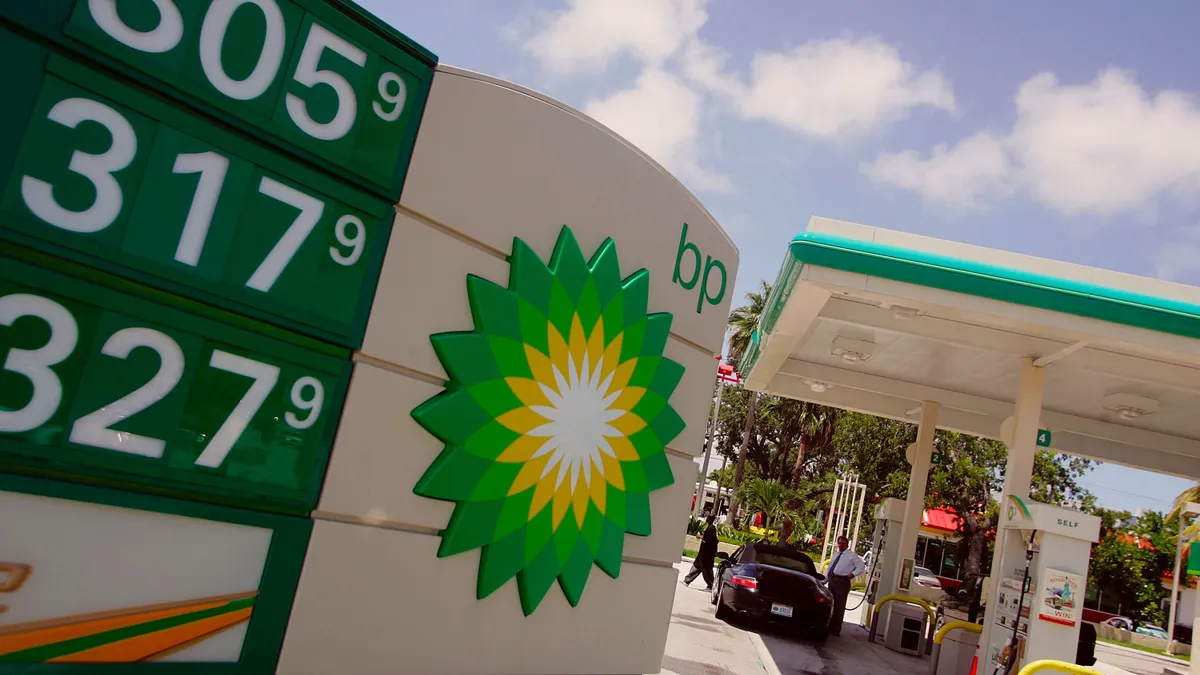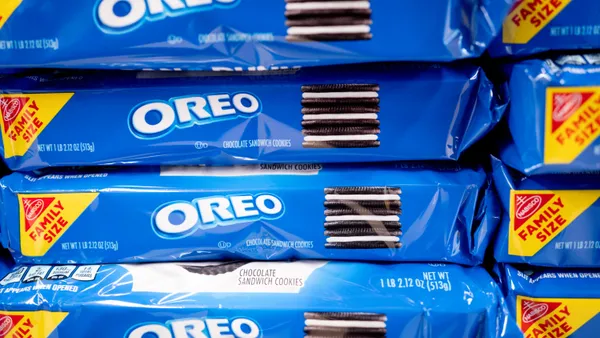Dive Brief:
- Energy giant BP announced last week it was collaborating with climate solutions software provider CHOOOSE to expand the startup’s technology platform and its lower carbon product offerings. The collaboration will support the aviation sector across a range of decarbonization initiatives.
- The partnership aims to help advance the technology airlines need to scale their sustainable aviation fuel programs and meet Carbon Offsetting and Reduction Scheme for International Aviation compliance obligations. Under CORSIA, all airline operators with annual emissions greater than 10,000 tons of carbon dioxide equivalent are required to annually report their emissions from international flights.
- CHOOOSE — which provides digital solutions to aid decarbonization in hard-to-abate sectors such as aviation, shipping, and freight transport — said BP’s investment would allow it to further develop its aviation carbon programs. These programs allow airlines and air freight companies to centrally manage their decarbonization initiatives, ranging from emissions calculations and reporting to carbon removals.
Dive Insight:
Though BP is primarily a multinational oil and gas company and continues to invest in fossil fuels, it has also committed to “reimagining energy.” The London-based company said it aims to “dramatically reduce carbon” across its operations and production and back new low carbon and transition businesses, products and services, including bioenergy, EV charging, renewables and power and hydrogen generation. The oil major also pledged to become a net-zero company by 2050 in 2020.
“We aim to help companies in the aviation, marine, and freight sectors meet their compliance needs and voluntary sustainability goals through a combination of digital solutions and low-carbon product offerings,” BP’s senior vice president of low carbon solutions, Marisa Buchanan, said in the press release.
Air BP’s sustainability senior manager, Andreea Moyes, said the partnership strengthens BP’s ability to support the aviation industry’s decarbonization ambitions and provide customers with more expertise.
Airlines that fall under CORSIA compliance obligations are also required to keep track of their fuel use for each individual flight to calculate their carbon dioxide emissions. To guarantee data accuracy, the carbon reduction scheme also requires annual emissions reports to be verified by a third-party verification body. CHOOOSE said its software helps large enterprises oversee the “increasing complexity” of their decarbonization programs to better meet such compliance requirements.
The collaboration announcement came a day after BP said it was taking full ownership of the Beacon Wind offshore projects located between Massachusetts and New York. At the same time the company announced it was relinquishing its 50% stake in the Empire Wind offshore project to Equinor — a project the two energy majors had initially partnered on. Both firms scrapped their agreement last month to sell power from the proposed Empire Wind 2 project, citing rising inflation, interest rates and supply chain disruptions.
BP has also faced increasing investor pressure to drop its clean energy pledges and its strategy to transform its business into a clean energy provider. BP’s commitment to reduce oil and gas production by 25% by 2030, compared to a 2019 baseline, was met with much criticism from Bluebell Capital Partners, a London-based hedged fund which acquired a small stake in the energy major last year. In a letter first reported on by the Financial Times, Bluebell said BP’s “irrational strategy” depressed the value of the oil company’s share price.












